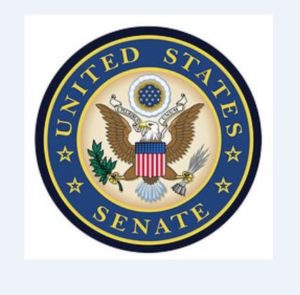
As of September 1, a non-binding resolution officially known as H.Con.Res.33, known as “The Local Radio Freedom Act,” officially reached a bipartisan majority of co-sponsors in the House of Representatives.
This support all but killed any efforts by music industry lobbying organization such as musicFIRST to get a House vote for the “American Music Fairness Act,” introduced by retiring Rep. Ted Deutch (D-Fla.).
While the “AMFA” is flailing in the House, the Senate has just gotten companion legislation. But, does it have any legs?
That remains to be seen, as two Senators who voted against an amendment designed to get the Journalism Competition and Preservation Act passed on Thursday by the Senate Judiciary Committee have introduced a version of the AMFA in the Senate.
The legislators now in the crosshairs of the NAB — and Radio — are Sens. Marsha Blackburn (R-Tenn.) and Alex Padilla (D-Calif.). As they see it, the AMFA “would require broadcast corporations to pay performance royalties to creators for AM/FM radio plays.”
With H.R. 4130 gaining no further co-sponsors after its 33rd signed on at the end of March, musicFIRST believes the Senate bill sets Congress up for action “this summer and fall.”
Former Rep. Joe Crowley, who infamously lost his House re-election bid in a primary race to Alexandria Ocasio-Cortez, is today the Chairman of musicFIRST. He played up the Senate introduction of the “AMFA” by claiming it is “gaining momentum” on Capitol Hill.
He then took another swipe at what he considers “Big Radio,” which has used “an antiquated loophole to deny payments to artists for decades.” In a musicFIRST release, both iHeartMedia and Cumulus Media were singled out. “[T] hey have never shared a penny of that money with artists,” musicFIRST claims, not mentioning royalty fees paid through BMI, ASCAP, GMR or any other fees radio stations already pay for the right to play certain songs.
With Audacy Corp. shares below $0.40 for the first time in the company’s history and both Cumulus Media and iHeartMedia each seeing their stock below the $10 mark, the radio industry is far from bathed in luxurious profit margins. In fact, the FCC has acknowledged the fiscal challenges of many radio broadcasting companies, entering consent decrees with several licensees instead of levying a fine. Additionally, it lowered its increase in fiscal year 2022 regulatory fees for Radio, something the NAB heavily lobbied.
Don’t tell that to Crowley, who is eager to “finally end this injustice” with respect to “the thousands of American artists and creators who deserve to be paid fairly when their work is played on AM/FM radio.”
Members of the musicFIRST coalition include the American Federation of Musicians, American Association of Independent Music (A2IM), the Recording Academy, The Recording Industry Association of America (RIAA), SAG-AFTRA and SoundExchange.
BIG RADIO? LOOK AT BIG MUSIC
Interestingly, the introduction of the AMFA in the Senate comes one day after the release of a mid-year 2022 RIAA music revenue report.
U.S. recorded music revenues in the first half of 2022 rose 9% to $7.7 billion at estimated retail value, “building on the strong growth experienced the prior year,” the RIAA reports.
Streaming revenues from paid subscriptions, ad-supported services, and other formats grew 10% to $6.5 billion during this period.
The number of paid subscriptions grew to a record high of 90 million.
NAB RESPONSE COMES QUICK
Minutes after Radio Ink shared the news first with the radio industry, NAB President/CEO Curtis LeGeyt issued a statement confirming that his organization “remains steadfastly opposed to the AMFA, which disregards the value of radio and would undermine our critical public service to line the pockets of multinational billion-dollar record labels.”
LeGeyt added that the NAB thanks the 250 bipartisan members of Congress, including 28 senators and a majority of the House, who instead support the Local Radio Freedom Act, “which recognizes the unique benefits that radio provides to communities across the country and opposes inflicting a new performance fee on local broadcast radio stations. We are committed to working with lawmakers to find a mutually beneficial solution to this decades-old policy disagreement, but this one-sided AMFA proposal is not the answer. We urge the recording industry to return to the negotiating table in an effort to find common ground.”
The full report can be found here. Commentary from RIAA Chairman/CEO Mitch Glazier is on Medium.







More lies from Joe Crowley. He claims radio companies don’t shared money with artists. In fact they all pay artists royalties from streaming. It’s unfair to attack companies that pay artists just because you don’t like the law. But the fact is that radio companies follow the law and pay everyone they are required to pay. Crowley wants to create a new royalty that would mostly pay record labels. That’s who is paying his salary.